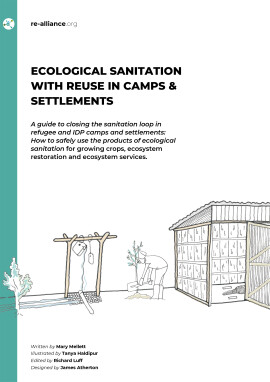
Water Supply
The goals of this book are to promote understanding of water supply technologies and water supply management to enable women to make informed choices. The book also contains information on how to assess the suitability of different water supply options and how to find financial and technical assistance. This book is suitable for use by technical and non-technical project managers, project staff, extension officers, trainers and consultants concerned with women in development and women's organizations.
Published: 1996
Pages: 80
eBook: 9781780444444
Paperback: 9781853393440
| ACKNOWLEDGEMENTS vii | |||
|---|---|---|---|
| PREFACE viii | |||
| INTRODUCTION 1 | |||
| 1 Women in water management and technology 3 | |||
| Women's roles in traditional water management 3 | |||
| Women in the decade 1981-90 4 | |||
| 2 The importance of an improved water supply 8 | |||
| Benefits of better water 8 | |||
| The reasons for good projects 9 | |||
| Suitable design 10 | |||
| The influence of women 12 | |||
| Involving both women and men 14 | |||
| Not all women are the same! 17 | |||
| 3 Options for an improved water supply 19 | |||
| Technology and gender 19 | |||
| Water sources: groundwater 20 | |||
| Water sources: spring water 22 | |||
| Water sources: rainwater harvesting 27 | |||
| Lifting water 31 | |||
| Transporting water 37 | |||
| Piped water supply 41 | |||
| Water purification 44 | |||
| 4 Gender in the project cycle 50 | |||
| Project identification 50 | |||
| Gender and personnel 53 | |||
| Introducing a project 54 | |||
| Participatory evaluation 57 | |||
| 5 A checklist for planners and evaluators 59 | |||
| Gender policy/attitudes 59 | |||
| Baseline 59 | |||
| Further preparation 60 | |||
| Participation and workload 60 | |||
| Entry points 60 | |||
| Construction, management, maintenance and actual use 60 | |||
| Steps towards involvement of particular groups 61 | |||
| Wrap-up questions 61 | |||
| 6 Detailed case studies . 63 | |||
| Improved water supply, Indonesia 63 | |||
| Participatory development planning, Kenya 63 | |||
| Handpump maintenance, Sri Lanka 64 | |||
| Community-managed water supply systems, Colombia 64 | |||
| A lesson learned about gender, Malawi 65 | |||
| Distribution of bleach powder by women's groups, India 67 | |||
| RESOURCES 69 | |||
| REFERENCES 71 |
Vijita Fernando
Fernando is the current chairperson of the Centre for Family Services, the NGO pioneered by Dr Manoranee Saravanamuttu for women and children affected by conflict. She is a member of SLACLALS, the English Writers’ Cooperative, and the Sri Lanka Federation of University Women.
Field Guide to Environmental Engineering for Development Workers
Participatory Approaches and Community Management in Engineering Projects
2009
https://doi.org/10.1061/9780784409855.ch03 [Citations: 0]




